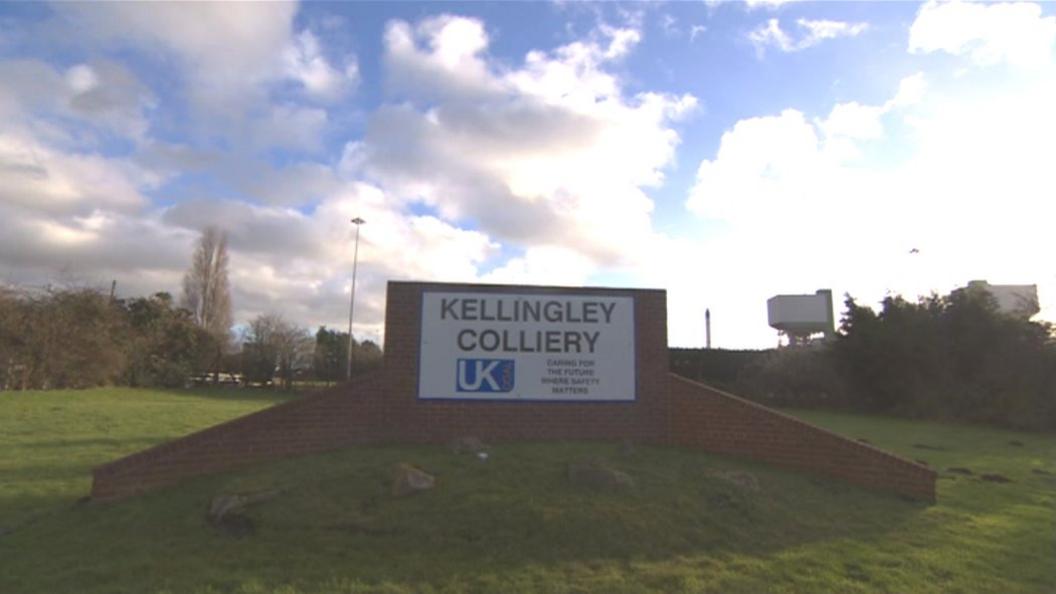Kellingley Colliery: How have its miners moved on?
- Published
The last 450 miners employed at Kellingley Colliery finished at the pit one year ago
Britain's last deep coal miners walked off their final shift one year ago. BBC News has caught up with some of the 450 men who worked at Kellingley Colliery, in North Yorkshire, to find out how they have moved on since losing their jobs.
At its height, Kellingley employed more than 2,000 workers and its closure brought to an end centuries of deep coal mining in Britain.
Known locally as the Big K, the largest deep pit in Europe was hailed as the new generation of coal mining. Its miners could bring up to 900 tonnes an hour to the surface.
Two shafts descend some 2,600ft (800m) underground where, from the bottom, miners travelled about five miles on small battery-powered trains in 30C heat before lying chest down on a conveyor belt to reach the coalface.
Now many of the former subterranean workers find themselves in a totally different environment.

Shaun McLoughlin, former Colliery Manager at Kellingley, who now works at the National Coal Mining Museum
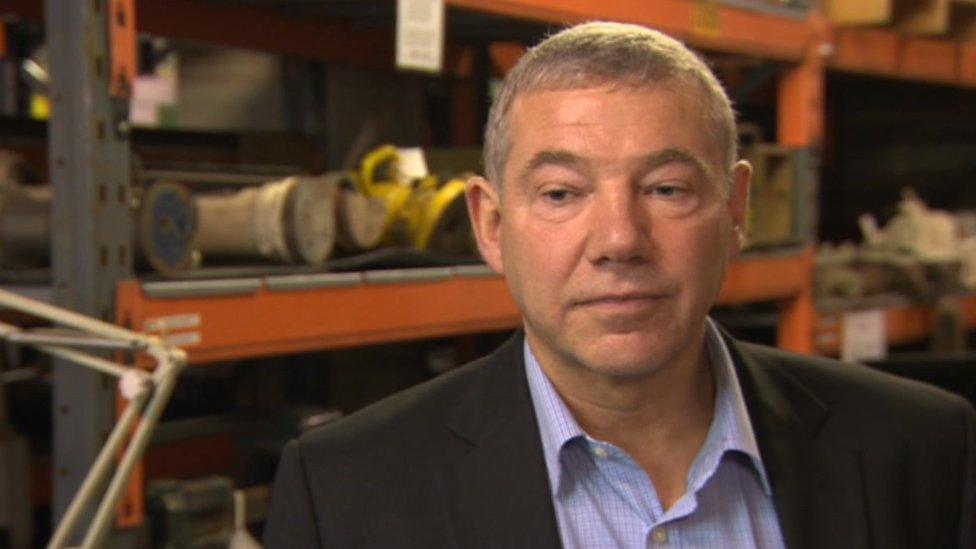
Shaun McLoughlin: "It took months to finally relax from under the pressure"
"The last few months were really difficult; the whole mine was under a lot of pressure to get finished on time, which they did.
"It was a great relief when we finally finished and closed the mine on a successful plan.
"Originally, it was very difficult because I have come into a museum business; the pace of life is a lot slower and relaxed but I've acclimatised and am really enjoying it.
"It took months to finally relax from under the pressure and stress I was under.
"I've still got a garage full of Kellingley mementoes; lots of guys have donated lots of their artefacts and memorabilia.
"After 39 years of mining I thought I knew everything about mining. Once I came here I realised I know nothing about mining. It's a big learning curve for me, catching up with the historical aspects of mining.
"It's a totally new life for me and I'm enjoying it."

Josh Young, one of the last miners taken on at Kellingley, has applied for a visa to go to Australia to work in the mines there
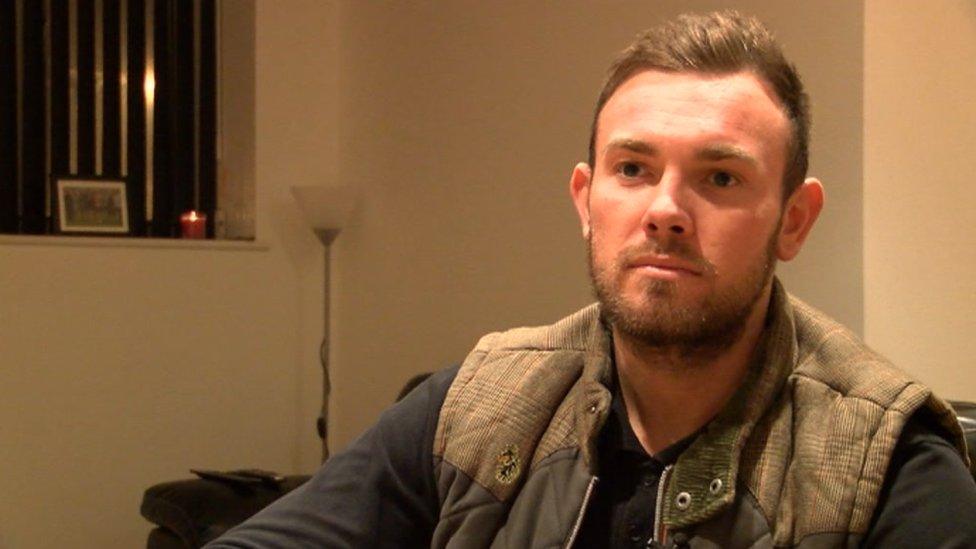
Josh Young: "It's just something I really want to carry on doing"
"We got promised 20 years and we only managed two - I left my job as an electrician to work in the pit.
"It's made me want to carry it on, I've applied for my visa to move to Australia.
"The camaraderie of working underground is a great environment to work in.
"It's what my family has done - my dad was a miner, both my granddads were, and it's just something I really want to carry on doing.
"Within that two years I realised that's the job I want to do for the rest of my life. There is nowhere else in this country to carry it out.
"The guys take you under their wing and look after you, make sure you are working safe constantly.
"It's not an easy job but working with so many people, no matter how hard that job is, you get on with it and forget how hard it is."

Rob Cheney has started his own conveyer belt business
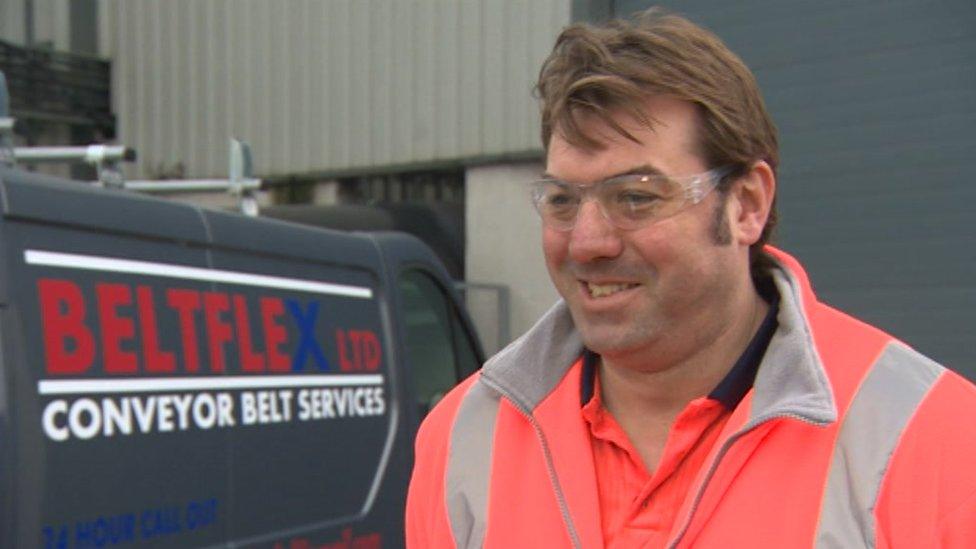
Rob Cheney: "We all stick together still"
"The first four months was really hard; we didn't know how to advertise properly or get in touch with customers. Since then it has really picked up.
"It is totally different to what it was like underground.
"It is a totally different way of life out here, there's a lot more fresh air for one. I was proud to be a miner and used to love telling people what I did. We're doing this because we can't be coal miners.
"Working at the pit learnt us a lot about working in a team and you never lose what you learnt down pit.
"People have given us a chance as a business and let us show them what we can do.
"A few lads from the pit have come on other jobs to help me; we all stick together still."

Nigel Kemp is claiming a reduced pension - Kellingley was the only place he had ever worked
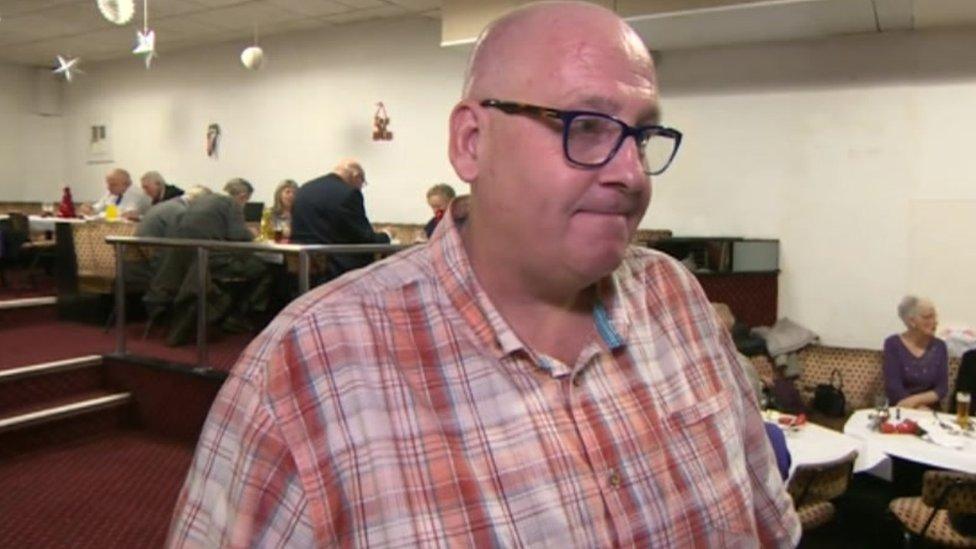
Nigel Kemp: "I've applied for a couple of jobs but my skills aren't transferrable"
"Most of the guys that have had to get a job have found some success, some are still pottering about.
"Some of the lads have been set on and then laid off after 10 months but that's the reality now - people don't want to employ you for 35 years like most of us have been.
"I am lucky enough I was 50 years old when I finished so I could get a little bit of my pension, albeit reduced, and I can go out there and select work.
"I've applied for a couple of jobs but my skills aren't transferrable, so I've been told."
- Published18 December 2015
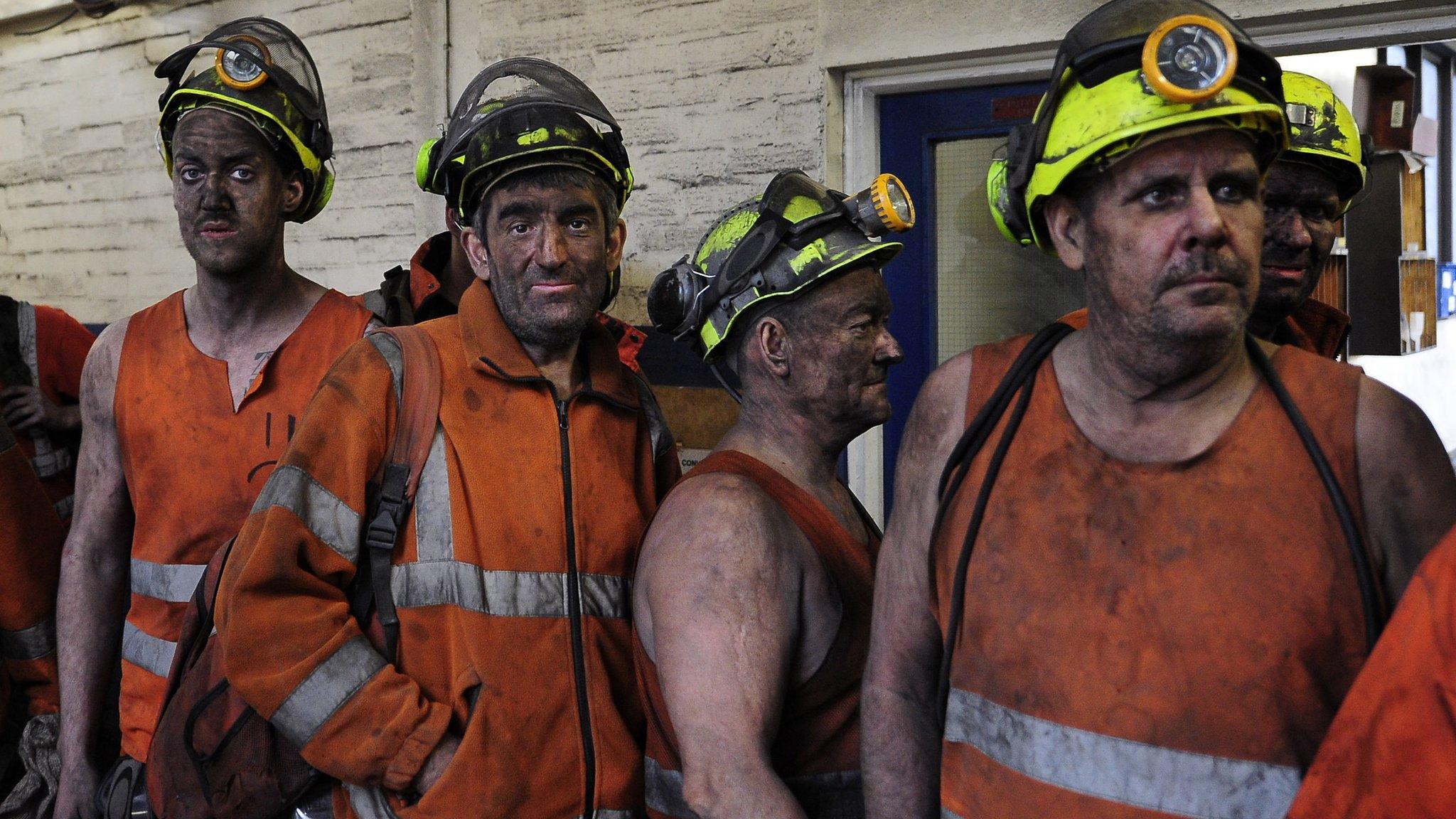
- Published18 December 2015
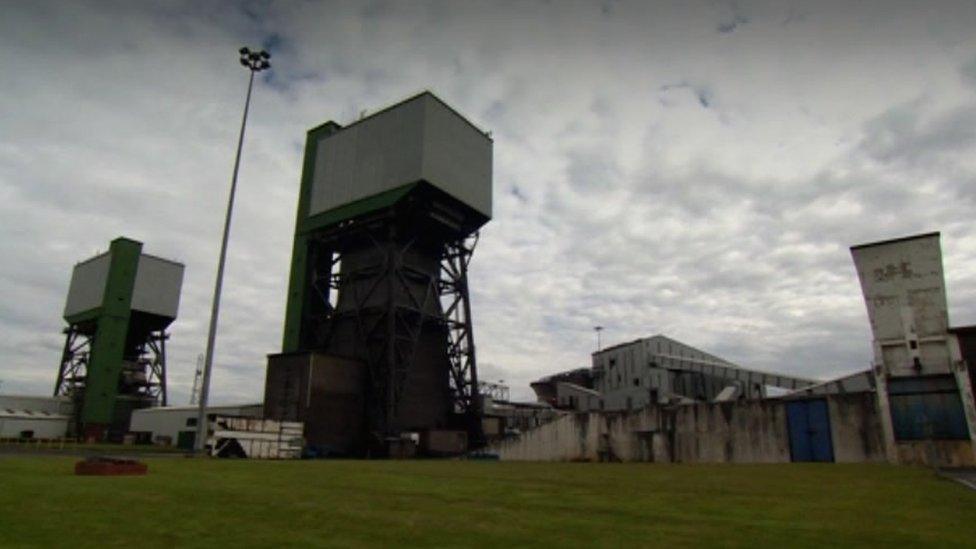
- Published30 December 2014
